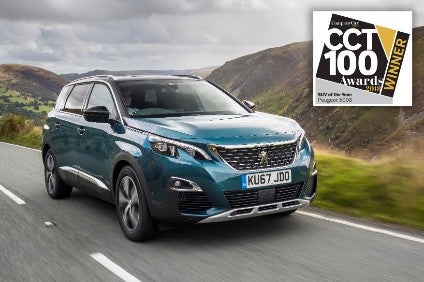Thanks largely to Volkswagen, diesel’s had a bad rap the last couple of years. When you add in sway-in-the-currently-fashionable-breeze politicians, such as the UK government which has laid out only vague details of its next tax-the-diesels assault, it’s little wonder potential buyers are adopting a wait-and-see approach and sales are down.
Faint reward for an auto industry that, rather than installing manipulative software as VW is alleged to have done, to its subsequent enormous cost in fines and other penalties and recalls, mostly got to work with suppliers and developed selective catalyst reduction with urea injection which, in conjunction with a particle filter, gets the bulk of the nasties out of the exhaust gas before it hits the streets. Is it perfect? No. But, when following a new(ish) diesel car these days, you rarely see smoke or get more than a faint whiff of that special diesel aroma. Downside is the added cost, the need to keep the urea tank topped up (a Peugeot 5008 1.6 120 BlueHDi I just drove for a week conveniently had the blue capped filler next to the main diesel tank filler) and the high price of replacing catalysts and particle filters.
Horses for courses should also apply – if you drive 20,000 mostly motorway miles a year, a new EU6-compliant (the rules keep tightening) turbodiesel should suit, and it’ll probably come, manual or automatic, with a stop-start system to keep traffic light stop emissions to a minimum. If, like me, you barely clock up 3,000 miles a year, mostly on short runs, go petrol, hybrid, PHEV, bike or Shank’s pony – consumer forums here are full of tales of woe from people who bought a diesel ‘for the low emissions and economy’ and have encountered the words ‘blocked particle filter’ in conversations with their friendly local service advisor.
Which leads nicely on to this week’s most-read just-auto article: Bosch claiming a major breakthrough in diesel technology which would enable automakers to reduce emissions of nitrogen oxides (NOx) so drastically they would comply with future limits without the need for any additional technology (such as manipulative software able to detect a test regime from real world driving, eh?). A combination of advanced fuel injection technology, a newly developed air management system, and intelligent temperature management has made such low readings possible, the supplier said. Since 2017, European legislation requires new passenger car models emit a maximum 168 milligrams of NOx per kilometre. From 2020, this dives to 120. Bosch claims its new tech can achieve as little as 13 in standard legally compliant RDE cycles. In challenging urban conditions, where test parameters are well in excess of legal requirements, the average emissions are as low as 40. Sounds promising. As CEO Volkmar Denner said: “Equipped with the latest Bosch technology, diesel vehicles will be classed as low-emission vehicles and yet remain affordable.” Bring it on.
Auto industry executives often disappear for a while and then pop up again somewhere else and that’s the case with a former Opel chief who, we reported this week, has surfaced in the currently trendy EV start-up sector. It appears talks to save GM Korea went down to the wire before someone blinked and we had details of what was agreed after a marathon overnight session. The $0.9bn charge to fix the Korea Patient hit GM’s books in the first quarter, rating a mention in this week’s financial results announcement. Cellphone and comms systems maker Huawei may be having some difficulty being allowed to sell its handsets in the US but, here in Europe, a connected vehicle partnership with PSA is bearing first fruits.
Our supplier specialist Simon Warburton has been busy with reports from his recent visit to Turkey and all his coverage, more stories out this week, are now handily bundled here. Well worth a look.
Volvo told us this week “robust” customer feedback and demand for the European in-car delivery and US mobile fuel and wash services was encouraging further development of its connected car platform. Which was duly followed up by news that US Amazon Prime customers can now have their parcels delivered to the boot, er, trunk. That made national TV news in the US from which I learned the service also applies to some OnStar equipped GM models. Good idea, provided the baddies aka ‘porch pirates’ who plague home deliveries over there (and have led to the development of smart delivery systems such as this, secure home access and nominated shopping centre collection bin clusters) don’t switch tactics. In which case I forecast a steep rise in replacement rear window or trunk lock sales.
Have a good weekend.
Graeme Roberts, Deputy Editor, just-auto.com







